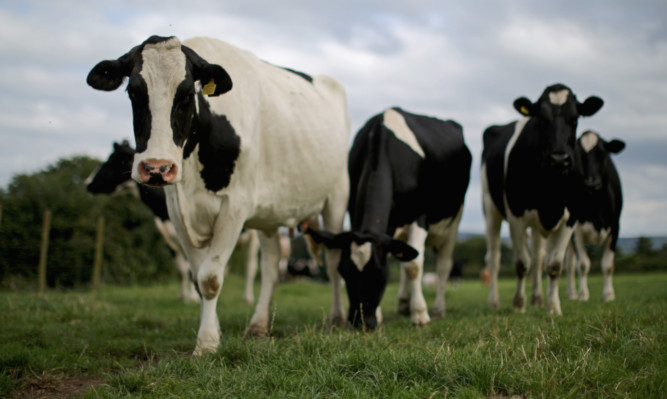A new wave of price cuts by all of Scotland’s major milk buyers has prompted the farmer’s union to demand that processors and retailers accept more of the costs and risks involved in dairy production.
Muller, First Milk, Lactalis, Arla and Grahams have all announced price cuts which will come into force in the coming weeks and many dairy farmers are now well into a second consecutive year where prices are below the cost of production.
First Milk producers in the Scottish mainland and Isle of Bute pools will see a drop of 0.61p a litre to 16.22p a litre this month; Lactalis are paying 2p per litre less to their producers and it is understood that Grahams is cutting the price to farmers by 1.5p-2p per litre.
With no sign of any uplift in the months ahead, NFU Scotland (NFUS) argues that processors and retailers are forcing a disproportionate share of weak market prices onto producers and risking the future of dairy production.
Speaking from Brussels, where he is attending European dairy crisis meetings, the union’s milk policy manager, George Jamieson conceded that the collapse in dairy commodity prices was a global issue, but insisted all the risks were currently being carried by producers.
“The rest of the supply chain manages their margins at the expense of those producing the milk,” he said.
Mr Jamieson added that there was little sign that consumers were benefitting from some of the weakest dairy markets in living memory as retail prices remain virtually unchanged.
“It may be simplistic, but retail prices for cheddar have only reduced marginally to around £5.85 per kg (equivalent to £5850 per tonne) while wholesale prices are down to well below £2000 per tonne. Regardless of the complexities in cheese pricing that is a huge margin being made at the retail end,” he said.
“Those in the dairy supply chain who have the power to exert downward pressure on milk prices must display a greater degree of empathy or rational understanding that their behaviour has very serious long term consequences for supply.”
Mr Jamieson added that a dysfunctional and short-sighted supply chain, if allowed to carry on, would severely compromise primary production, and called on Government to address the issue as a matter of urgency.
He added: “Without retailers and processors waking up to the damage they are doing, we run the risk of this prolonged price crisis taking out some of our most efficient and well invested dairy farmers and not just those producers deemed less efficient or contemplating leaving the industry.”










